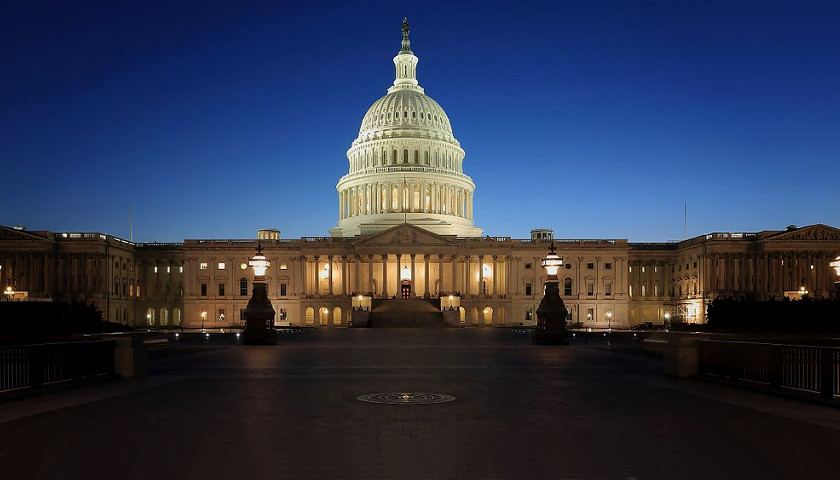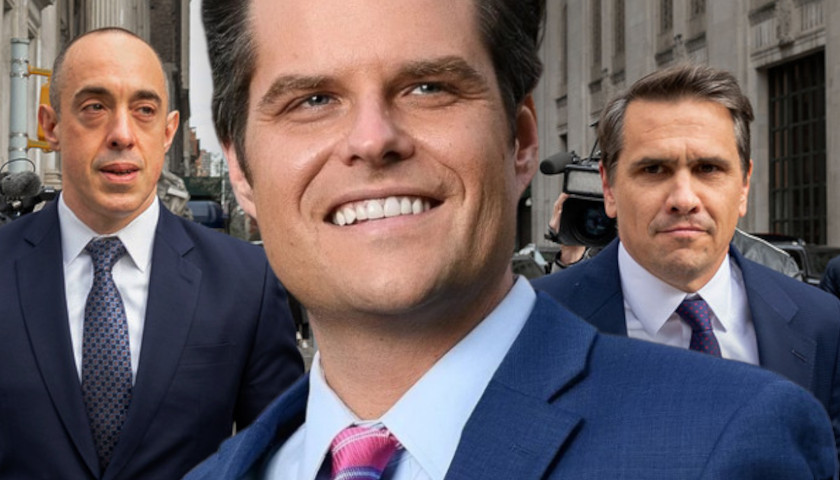by Adam Mill
You thought this last Supreme Court term rocked the political world? The next term threatens to blow up a system of “ghost” funding that the administrative state uses to run operations without voter accountability.
Over the last several decades, government agencies have discovered ways to fund operations without congressional appropriations, further fraying the already weak connection between the ballot box and real power in Washington, D.C. What’s worse, the “ghost” budgets go a long way in explaining the runaway inflation under which we all now suffer.
Article I of the U.S. Constitution states, “No Money shall be drawn from the Treasury, but in Consequence of Appropriations made by Law.” This key clause has come back into focus because of a lawsuit challenging the Consumer Financial Protection Board (CFPB) which funds its operations directly from money printed by the Federal Reserve and not through appropriations.
In a recent Fifth Circuit case, Consumer Financial Protection Board v. All American Check Cashing, a company challenged the CFPB’s authority due to its unique funding regime. Writing on behalf of a bloc of five Fifth Circuit judges, Edith H. Jones expressed doubts about the very validity of the CFPB for this reason.
“The Constitution vests Congress not only with the power to tax and spend, but also removes ‘the option not to require legislative appropriations prior to expenditure,’” Jones wrote. “The Appropriations Clause embodies a fundamental separation of powers principle—subjugating the executive branch to the legislature’s power of the purse . . . I would hold that the CFPB’s funding structure violates the separation of powers principle enshrined in the Appropriations Clause.”
As noted by the House’s own history page, “Elbridge Gerry said at the Federal Constitutional Convention that [Congress] ‘was more immediately the representatives of the people, and it was a maxim that the people ought to hold the purse-strings.’” It further notes,
The constitutional provision making Congress the ultimate authority on government spending passed with far less debate. The framers were unanimous that Congress, as the representatives of the people, should be in control of public funds—not the President or executive branch agencies. This strongly-held belief was rooted in the framers’ experiences with England, where the king had wide latitude over spending once the money had been raised.
I’ve argued elsewhere that the true reason for the energetic effort to stop Judge Brett Kavanaugh from ascending to the Supreme Court was his stance on the administrative state. Kavanaugh is noted for his clear opposition to administrative law taking on the same level of import as legislative pronouncements.
It’s almost impossible to overstate the impact of a Supreme Court decision striking down ghost funding federal agencies without appropriations.
For example, the Department of Justice uses assets forfeited by suspected criminals to pay its own expenses and pay bounties to local law enforcement agencies. The Justice Department’s Drug Enforcement Agency confiscates billions in forfeited funds without ever charging owners with a crime. Allowing law enforcement agencies to fund themselves by seizing property from the public also raises constitutional concerns, to say the least. Recall that the Justice Department won’t enforce the federal law prohibiting protests outside Kavanaugh’s personal residence.
Scrutiny may also be applied to the Federal Reserve which, for some reason, has been subsidizing the mortgage industry for years by buying mortgage-backed securities. The Federal Reserve is now holding approximately $2.7 trillion in highly speculative mortgage-backed securities. This subsidized mortgage lenders with money that was never appropriated by Congress. Add to that the very dubious basis on which the Federal Reserve has justified purchasing $5.7 trillion in federal debt, often during periods of growth and inflation. In reality, the purchases prop up profligate social program spending at the expense of wage earners and savers unable to hedge against inflation.
Instead of forcing the government to borrow at market rates, the Fed subsidizes the government’s borrowing costs by guaranteeing purchases at favorable prices. So while the debt may be authorized, the Fed’s money purchasing that debt potentially constitutes an unconstitutional subsidy to the U.S. Treasury. In effect, the Fed is acting as a shadow treasury but without bothersome constitutional limits.
Again, this is great for bond traders and social justice activists but not so great for Americans who see their paychecks and savings eroded by the gusher of printed money. All these Fed purchases have boosted the M2 money supply from around $16 trillion in early 2020 to approximately $22 trillion now. The only mystery about inflation is why it hasn’t caught up to the expansion of the money supply.
Writing for the Constitution Center, Yale Law Professor Kate Stith raised concerns over how Congress funds intelligence agencies, noting, “There is . . . an indefinite, permanent appropriation for national intelligence activities, the ‘objects’ of which are only partially specified in federal statutes.”
Many of these funding schemes often do not comply with the constitutional requirement of disclosure with, “a regular Statement and Account of the Receipts and Expenditures of all public Money shall be published from time to time.” As Stith points out, “Since the Founding Era, Congress has largely delegated its duty under the Statement and Accounts Clause to Executive Branch agencies such as the Treasury Department and later the Office of Management and Budget. Those agencies in turn (and in some cases, by statutory mandate) have failed to include or report in full on a variety of ‘backdoor’ federal spending programs, federal insurance liabilities, and spending and borrowing by semi-autonomous federal entities.”
This secrecy makes the practice of ghost funding even more remote from control by voters.
Funding executive branch activities through non-appropriated funds erodes democracy. If we are to live in a system of self-government then elected members of the government must maintain control over the levers of power—especially the money that funds these operations. Ghost funding severs the link between the ballot box and the terrifying power of the federal government.
– – –
Adam Mill is a pen name. He is an adjunct fellow of the Center for American Greatness and works in Kansas City, Missouri as an attorney specializing in labor and employment and public administration law. He graduated from the University of Kansas and has been admitted to practice in Kansas and Missouri. Mill has contributed to The Federalist, American Greatness, and The Daily Caller.




